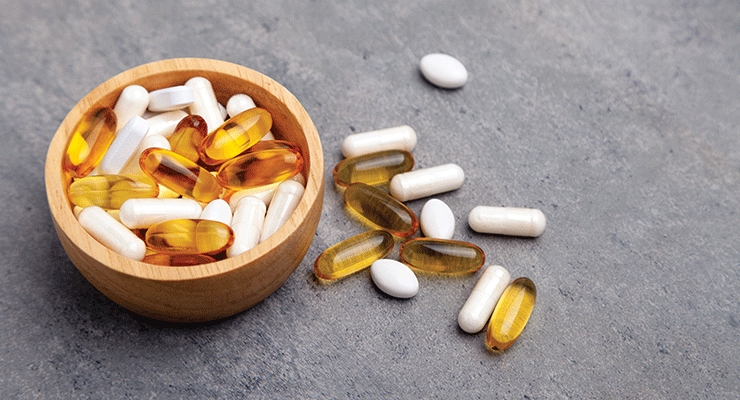Healthy diet that is rich in nutrients can reduce your chance of experiencing eye problems including dryness. The diet you choose to eat can be enhanced with nutrients that you may be lacking.
Natural compounds, lutein and Zeaxanthin block UV light and harmful blue light from reaching the retina. They are found in the leaves of berries, greens and egg yolks.
Vision Protection
A healthy diet is vital to maintain eye health. However, certain patients require an dietary supplement to reach specific goals. Selecting a premium eye product that is free from unnecessary fillers such as dairy, wheat and corn helps in the absorption and absorption rate of minerals and vitamins.
Experts recommend supplements that contain vitamin C as well as vitamin E and lutein as well like selenium and zinc. Vitamin A can be crucial for vision in addition to preventing eyesight problems like night blindness, and conditions like dry eyes syndrome or night blindness can also be found in the supplements. Vitamin A is a crucial component of the protein of rhodopsin. It helps the retina function in low light conditions. This antioxidant also reduces macular degeneration, cataracts and other eye diseases.
A different antioxidant is zeaxanthin, is found in a variety of vegetables and fruits (particularly the leafy vegetables such as kale, spinach and collards) as well as orange fruits and carrots. Also, it is found in fat fish and some oils, including canola oil, flaxseed oil, and Chia seeds.
Eye Health
Vitamins C, A and E are essential to maintain eye health. Vitamin deficiencies can increase your risk of particular eye disorders, such as cataracts, glaucoma and. Eye diseases like cataracts and glaucoma are preventable or slow by specific eye-care supplements.
They include lutein as well as zeaxanthin that are carotenoid pigments found within the retina. They can be able to reduce the detrimental effect of UV and blue light to your eyes. They’re antioxidants with potent properties that support macular health, and may help slow the decline of vision due to age.
Ginkgo extract, bioflavonoids and other components have also been proven to help reduce dry eye problems. These phytochemicals scavenge free radicals, and also inhibit the process of glycation of proteins, which is a factor that can cause protein-based damage to your eyes.
Other eye health supplements include selenium and zinc, both of which have been shown to protect against the inflammation of the eye. Additionally, studies have suggested that omega-3 fats may reduce the development of dry eyes.
Preventing age-related decline in Vision
Eye health supplements are a great way to help maintain your eye. They must however, be taken in conjunction with regular eye doctor appointments as well as a healthy diet. Eye experts generally are of the opinion that it’s better to get the nutrients you need from a well-rounded diet rather than supplements.

Certain vitamins, such as the zeaxanthin and lutein vitamins, C, Vitamin E as well as omega-3 fatty acids, may decrease your chances of developing eye problems that are chronic. Many supplements marketed for eye health have a mix of these essential nutrients.
These glucosamine sulfate nutrients are found in foods, such as the orange-yellow fruits and vegetables (such as apricots, carrots along with green leafy veggies and pumpkin) tomato, dark chocolate. Beta-carotene as well as other carotenoids aid to keep the cornea healthy (the transparent outer layer of the eye). Additionally, they help to prevent dryness. It was found that the Age-Related Macular Degeneration Study, also known as AREDS revealed the benefits of a daily high-dose supplement of copper, zinc and vitamins C, E and A can reduce the development of AMD by about 25% of AMD.
Enhancing Vision
Eating a nutrient-rich diet is ideal for promoting healthy eyes. This can be complemented by supplements that lower your risk to eye disease such as cataracts, glaucoma and age-related macula degeneration.
The researchers have discovered that a few substances, like Zeaxanthin, lutein and C, along with lycopene the omega-3 fatty acid as well as lutein can help decrease the chance of suffering from eye diseases. They can be present in a variety of foods, including oranges, the green leafy vegetables, tomatoes, and eggs.
A third important nutrient for the eye is Thiamine. It’s thought to stop the progression of macular degeneration and slow the progression of macular degeneration, as well as prevent dry eyes. It is found in a variety of meals, including beef and whole grain.
The top nutritional supplements to improve eye health will have a low glycemic index and do not contain ingredients that may cause the development of an allergy. It’s also wise to avoid the herbal components of these supplements unless they’ve been thoroughly examined and have proven to be secure for you.
